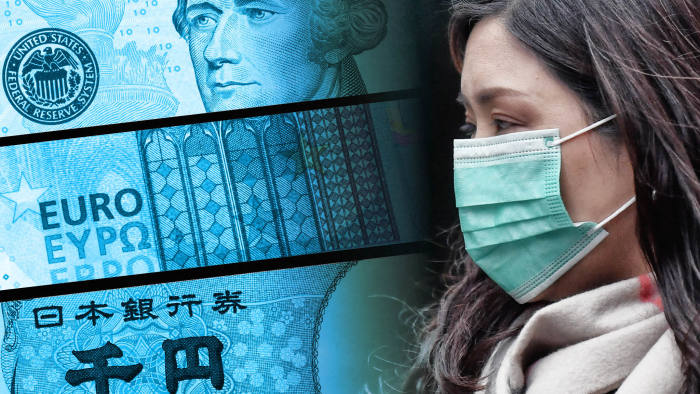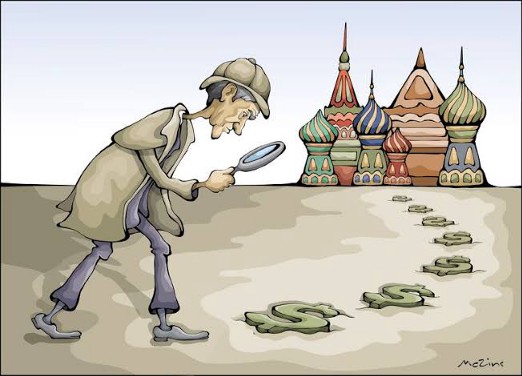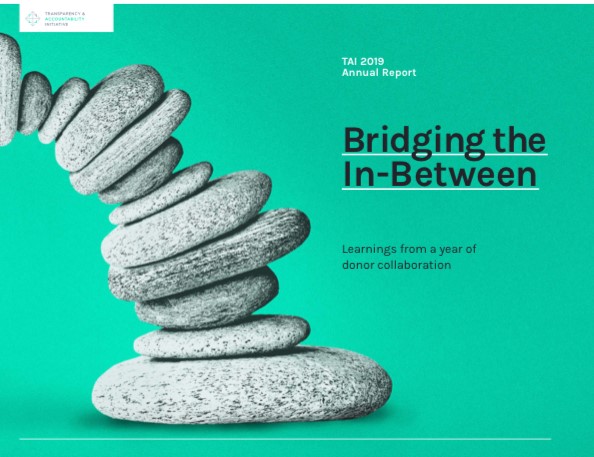Highlight
- Wolves in sheep’s clothing
- Data to the rescue?
- Lull before the storm – taxes during COVID-19
- Follow the money (even more than usual)
- Distraction dangers, the walking dead and more
- Act smart
- TAI Spotlight: A year in the life of a donor collaborative
Wolves in sheep’s clothing

Image credit: INcontext International
Crises have long been manipulated by authoritarians to seize or consolidate power. The coronavirus spread is no exception. Anne Applebaum warns against surrendering rights to power-hungry leaders who seek to grab more power in the guise of “emergency measures.” Alicia Ely Yamin and Roojin Habibi stress human rights protection cannot be an afterthought in epidemics and wonder instead if this can be an opportunity to heighten trust in democracy and multilateralism. César Rodríguez-Garavito will agree with them as he calls for a long-term vision to address human rights issues amid current threats. More reflection and concerns from the United States, Canada, China, and Kenya.
Beyond the virus itself, another unseen enemy is the spread of misinformation. Accountability Lab launches coronavirus Civacts campaign to debunk rumours and encourage information verification in Nepal, Pakistan, South Africa, Mali, and Nigeria to support the countries’ response to the pandemic. A $1 million commitment to support fact checkers in 45 countries will also serve as a helpful roadmap for grantmaking to combat this problem. Emily Neil highlights the role of solutions journalism in helping people stay informed about progress in the face of hopelessness. Be inspired by 50 of the best investigative and enterprise stories from 17 countries, reporting on topics from testing and hospital readiness to fraud and disinformation.
Data to the rescue?
To better understand how to fight disease outbreaks with data, GovLab has put forth a call to action to build data infrastructure and ecosystem needed to tackle the COVID-19 pandemic and other dynamic threats. In part, it is crowdsourcing a Living Repository of Data Collaboratives in Response to COVID-19, featuring dozens of data collaboratives seeking to address the spread of COVID-19 and its secondary effects. If you are aware of (or working on) additional data collaboratives supporting the response, please do add them to the repository. Also, check out this guidance and information from Global Privacy Assembly members and observers on data protection and COVID-19.
Taking a step back from the pandemic, Adrienne Day reflects more broadly on the potential of data to drive social change. For more on the value of collaborative approaches, see our own reflections (under the TAI Spotlight).
Lull before the storm – taxes during COVID-19

Image credit: Financial Times
To help businesses and families stay afloat, governments around the world are waiving or putting on hold various tax payments. They are ramping up borrowing but there is a limit to how much they can let their coffers deplete. With governments needing to mobilize unprecedented resources, taxes will play a very important role in the crisis. To help governments respond better and hopefully quicker, the Pascal Saint-Amans at the OECD has compiled a list of potential actions governments can take and another list on what has already been done. One worry is that in search of funds, the government will impose regressive taxes that hurt the most vulnerable. Vanessa van den Boogaard draws critical lessons from the past Ebola crisis that highlights that risk.
Digital firms were already under pressure to pay a higher share of tax where they have customers. Now, given the unprecedented business for Amazon and its equivalents worldwide to serve quarantined populations, governments will be even more anxious to tax effectively. Some signs of that as India announced a new digital tax on foreign e-commerce. Perhaps also a sign of the Indian government’s growing impatience with the OECD process to align digital taxation.
María Fernanda Valdés Valencia argues that for Latin American countries to adjust to digitization a more ambitious tax overhaul is necessary. Meanwhile, as negotiations continue in search of a compromise at the OECD, Alex Cobham digs into public comments on current proposals and is encouraged to find that investors are aligned with civil society in demanding more tax transparency.
In some good news, the IMF and World Bank have accepted Somalia into the Heavily Indebted Poor Countries initiative (HIPC), thus erasing US $5.2bn in debt. Following on the heels of this announcement, the World Bank and IMF are calling for more debt protection to poorer countries during this pandemic. African Finance Ministers are calling for the suspension of all interest payments as the World Bank requests suspension of all interest and principal payments to other governments in the face of the huge health crisis.
Follow the money (even more than usual)

Image credit: Nuclear Diner
With the rush to spend and keep economies afloat, COVID-19 is bound to bring about a myriad of opportunities for corruption. Sarah Steingrüber, Monica Kirya, David Jackson and Saul Mullard highlights the importance of continuing and strengthening anti-corruption efforts as corruption presents a dual threat to health outcomes in low-income contexts.
Transparency International warned the US Congress and the Senate to include anti-corruption measures as it shaped its historic US$2 trillion rescue package. Will the safeguards be enough? What of countries where oversight is harder to stipulate, where there is no government accountability office? Gavin Hayman advises governments that it is all the more important to keep procurement transparent, accountable, and participatory during this critical time.
We’ve all been learning the norm of “social distancing”, but Matthew Muspratt is cheered by the spreading attention to social norms in the fight against corruption and is intrigued by what social norms approaches could yield.
Meanwhile, the Global Initiative Against Transnational Organized Crime details how crime syndicates are being disrupted by coronavirus, too, but also taking advantage of new opportunities as people are even more online (protect your passwords!).
Distraction dangers, the walking dead and more
With coronavirus dominating headlines, many will see a chance to put out the bad news that will get lost or to step up egregious practices without fear of garnering attention. Vigilance is needed.
A case in point, CLIMA Fund has put out a new resource for funders, “Resourcing Earth Defenders.” The report reminds us of the terrifying risks that environmental defenders face. To better support activists in Latin America, they call for funding movements.
What of the spread of ‘Zombie’ firms? April Herlevi digs into Chinese state owned enterprises, many of which live on despite unsustainable business models and poor practices, and discusses how coronavirus will only further stymie government attempts at reform.
Nahema Marchal sheds more light on the impact of digital interference in elections and new research by Carnegie Endowment for International Peace explores how and why political transition can offer space to break patterns of gender-based political exclusion with examples from Latin America, Africa, and southern Asia. Cynthia Trigo Paz urges corporations to take more proactive steps towards addressing systemic gender discrimination.
Act Smart
The quarantine and social distancing required in many parts of the world at this time are altering the lives of millions of people and affecting businesses and nonprofits alike. In response, funders continue exploring ways and ideas on how to best support their grantees and partners. Paul Sullivan interviewed a dozen of philanthropists and shared his conclusions on how to make the most of one’s giving during a crisis. As the Dutch proverb goes, “In prosperity, caution; in adversity, patience” and as the Rockefeller Philanthropy Advisors recommend, “review, recalibrate, and recommit.” Of course, there are concerns about future grants as a private foundation endowments shrink during the economic downturn. Perhaps a time to spend down regardless? Certainly, all the more reason to be transparent in intentions and what is funded (Alice Casey offers some useful reflections on the value of funder transparency through the 360Giving experience).
Dan Cardinali encourages nonprofits to use this time as an opportunity to “play a calming role” and build stronger public trust. The Hewlett Foundation reminds us that “at their best, community foundations are powerful agents of change.” Here is what Maya Winkelstein says nonprofits need right now and how foundations should respond. These general ideas and advice, as well as fundraising principles, could help be innovative and forward-looking in this not-so-usual and unexpected period.
At any time though, Jon Huggett and Dan Berelowitz suggests that replace “smart talk” with “smart action” if you want to have a meaningful impact in the social sector. Good ideas don’t need to be peppered with jargon or sound extra-complicated. This paper analyzes six cases as the authors try to understand how to derive practical learning from evaluating the impact of interventions that are considered “hard to measure”, such as transparency responsiveness and accountability. Pair with some new and challenging experimental findings on whether transparency increases public participation in government affairs and whether it increases government accountability. We are still working our way through it but it’s an intriguing follow on to our recently published evidence synthesis around similar questions.
TAI Spotlight: A year in the life of a donor collaborative

A year in the life of a donor collaborative | Transparency and Accountability Initiative
We just published our 2019 annual report. “So what?” you ask. We believe our learnings may prove useful for other funders and for transparency, participation, and accountability practitioners. We have structured the report to make those learnings easily accessible, falling into two categories: field insights and donor collaboration insights.
Is Coronavirus putting your privacy at risk? | Luminate
As cases of coronavirus surge, governments around the world are increasing digital surveillance and censorship to help track the outbreak. What are the implications of these measures on our privacy and rights? Luminate’s Managing Director Martin Tisné explains.
UK aid to tackle global spread of coronavirus ‘fake news’ | DFID
To tackle misinformation during this pandemic, DFID will provide $600,000 to social media influencers through the H2H Network, to spread accurate information about the outbreak to younger audiences in Asia and Africa.
Protect caregivers for coronavirus | Ford Foundation
Ai-jen Poo, a member of the Foundation’s Board of Trustees, urges employers & policymakers to prioritize the needs of domestic workers and caregivers on the frontlines of the coronavirus pandemic.
Digital Learning During COVID-19 | MacArthur Foundation
Check out this online learning support form MacArthur grantee, National Writing Project. The resource includes learning support for teachers, students, and families as well as information on COVID-19.
CALL
- Job postings at Ford Foundation – Ongoing
Job postings at Luminate – Ongoing
BetterTogether Challenge for innovators – Ongoing
Job postings at Democracy fund – Ongoing - Free Digital Security Training – Ongoing
- Open Road Alliance Charitable Grant and Loan to organizations responding directly to COVID-19 – Ongoing
- Civic Hive Media Fellowship – March 31, 2020
- One World Media Fellowship – April 2, 2020
- Indela, Digital rights in Latin America (call for proposal) — April 4, 2020
- RECONNECT Webinar: “Rule of Law Backsliding in the EU – Recent Developments” – April 8, 2020 (9:00 AM – 10:00 AM EDT)
- OECD seeks input on draft model rules for reporting for platform operators with respect to sellers in the sharing and gig economy – April 13, 2020
- Call for proposals – Swashakt: Empowering women through collectives and group-based approaches – April 14, 2020
Call for Applications: WE EMpower UN SDG Challenge 2020 – April 15, 2020 - Global Tech Challenge: Solutions for Women – April 15, 2020
- Centre for Investigative Journalism Conference Grant – April 19, 2020
- The Boston Globe Spotlight Investigative Journalism Fellowship – April 24, 2020
- Call for Applications: Making a Difference Awards (highlights and promotes how the best of research has made a significant difference to Charities and Not-For-Profits) – April 27, 2020
- Co-Impact systems change grants (round three) – April 30, 2020
Request for proposal: Independent Public Interest Journalism – April 30, 2020
Call for suggestions on Humanitarian and Development Data Forum agenda – May 2020 - Grants fund investigative journalism – May 4, 2020
- Call for Projects Paris Peace Forum 2020 – May 12, 2020
- Call for applications: Intensive Anti-Corruption Training for Future Leaders – May 20, 2020
- Proposal Submission for the 2020 Summer Evaluation Institute – June 7-10, 2020
Amartya Sen Essay Contest 2020: Illicit financial flows – August 31, 2020
Call for Submissions to SSIR Series: Social Change in an Era of Extreme Polarization – Last Thursday of every month until early 2021
CALENDAR
Please double-check the websites for these events to make sure they are still happening – most likely they are not, though some may now be reconfigured for virtual participation.
EGAP Learning Days workshop – March 30-April 3, 2020 (Addis Ababa, Ethiopia)
[Webinar] Evidence into Policy and Practice Seminars: Research uptake and impact – how do funders see its future? – March 31, 2020
Devex Development Career Forum (exhibitor registration closes 17 March) – March 31, 2020 (Washington, D.C., US)
Centering Government Voices for the Journey to Sustained Impact at Scale – 1 April 2020, 2:30pm BST (Online)
Second Meeting of the Tendler Network – April 3, 2020 (MIT, Cambridge, United States of America)
Harambee – Let’s All Pull Together (largest gathering of Black professional in philanthropy) – April 16-18, 2020 (Raleigh, North Carolina, United States of America)
Global Technology Governance Summit – April 21-22, 2020 (San Francisco, United States of America)
Shaping the Future Forum 2020 – April 22 – 23, 2020 (Washington, DC)
British Expertise International Awards 2020 – April 23, 2020 (Kensington, United Kingdom)
3ie London Evidence Week Conference 2020 – April 23, 2020 (London, UK)
Personal Democracy Forum CEE 2020 – April 23-25, 2020 (Gdansk, Poland)
2020 International Symposium on Online Journalism (ISOJ) – April 24-25, 2020 (Austin, United States of America)
Frontiers of Social Innovation: People, Power & Resources: The Redistribution Wave – May 12-14, 2020 (Stanford University, California, USA)
2020 Media Impact Forum (funder-only gathering) – June 2, 2020 (New York, United States of America)
Transparency International: 19th International Anti-Corruption Conference – June 2 – 5, 2020 (Seoul, South Korea)
Human Rights Litigation Summer School at Berlin, Germany – June 8-12, 2020
Women and Girls Africa Summit – June 9-12, 2020 (Durban, South Africa)
RightsCon 2020 – June 9-12, 2020 (San Jose, Costa Rica)
2020 Neighborhood Funders Group National Convening (philanthropy support to grassroots power-building) – June 29 – July 1, 2020 (Washington, DC)
WE EMpower UN SDG Challenge 2020 – September 18 – 27, 2020 (New York City, United States of America)
The 2020 Journalism Funders Gathering (funder-only gathering) – October 6-7, 2020 (Philadelphia, United States of America)
Humanitarian and Development Data Forum – November 2-4, 2020 (Chambery, France)
International Open Data Conference –November 18-20, 2020 (Nairobi, Kenya)


